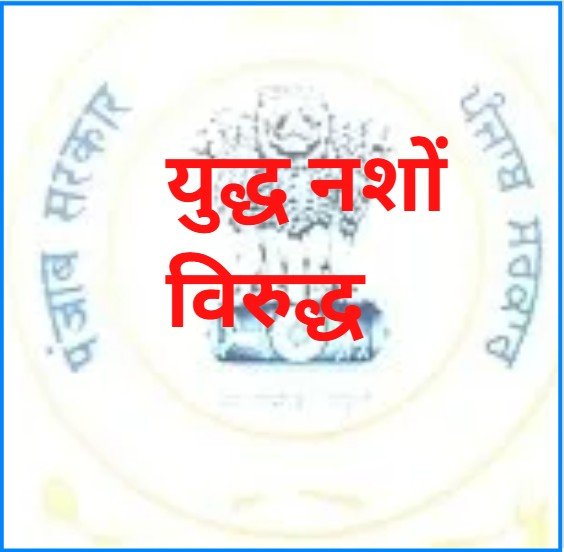In a decisive escalation of its war on drug abuse, the Punjab government has fortified its campaign under the ‘Yudh Nashian De Virudh’ initiative with renewed vigour, focusing on both law enforcement and rehabilitation. The campaign, which was launched as a cornerstone policy by the Aam Aadmi Party (AAP)-led state government, is showing tangible results, with a surge in drug-related arrests, voluntary surrenders, and de-addiction efforts seen across districts. From the civil hospitals to the remote villages, Punjab’s anti-drug machinery is now in high gear, as recent figures and administrative reports suggest a substantial rise in dope testing, police action, and the application of Section 64A of the Narcotic Drugs and Psychotropic Substances (NDPS) Act, which facilitates immunity from prosecution for addicts who volunteer for treatment.
Sources close to the civil administration have confirmed that daily dope testing at government-run civil hospitals has nearly tripled in the past six weeks, reflecting an aggressive push from district authorities. The testing is being carried out not just among suspected users picked up during night raids, but also among those voluntarily approaching hospitals or referred through community mobilisation drives. The feedback from medical officials has been stark: they say the scale of abuse still runs deep, but the difference this time is the government’s two-pronged strategy—strict criminal crackdown on smugglers and peddlers, alongside sustained rehabilitation for addicts.
According to data obtained from the Punjab health and home departments, an increasing number of first-time offenders have opted for treatment under Section 64A of the NDPS Act. This legal provision allows drug addicts immunity from prosecution if they voluntarily seek de-addiction treatment. This, combined with targeted counselling in government-run centres, is being viewed as a more humane approach, especially in rural belts like Majha and Malwa where the crisis had engulfed entire generations. Officials from the Department of Social Security and Justice indicated that more than 11,000 individuals have been directed toward treatment centres since April this year—a figure that represents a significant shift in approach from previous regimes.
On the enforcement front, Punjab Police have stepped up operations with precision. Checkpoints, vehicle inspections, and surprise raids have intensified on highways, border districts, and known transit corridors. Dozens of FIRs have been registered each week, and sources said there is a heightened coordination with central agencies like the Narcotics Control Bureau and the Border Security Force, particularly along the sensitive India-Pakistan border where cross-border smuggling continues to be a critical threat.
Speaking to the press last week, senior Punjab Police officials stated that technological surveillance has been improved significantly to trace digital footprints of syndicates operating via messaging apps and dark web networks. Several handlers were traced through digital money trails and SIM card triangulation. Authorities are also leveraging community intelligence and deploying undercover personnel in hotspots where conventional policing had failed in the past.
Punjab Chief Minister Bhagwant Mann has reiterated his government’s commitment to fighting the drug menace “with no compromise, no delay and no politics.” He urged opposition parties to support the movement beyond party lines and asked panchayats and local influencers to help spread awareness. The state has also roped in popular Punjabi artists and sportspersons to amplify the campaign’s messaging, aiming to de-glamourise drug use and rehabilitate affected youth into education and employment pathways.
While critics argue that the real test lies in sustaining the momentum and ensuring de-addiction centres are adequately staffed and resourced, the current tempo signals a significant departure from the past. Civil society groups too have acknowledged that more youths are now willing to talk openly about their addictions and take steps toward recovery, which was once a social taboo.
The campaign, which was earlier viewed with skepticism, is now increasingly being seen as Punjab’s boldest attempt yet at reclaiming its future from the grip of narcotics. Whether this transformation becomes permanent will depend on continued political will, community participation, and a relentless focus on dismantling the multi-layered drug supply networks that have devastated families across the state.
#PunjabNews #DrugFreePunjab #YudhNashianDeVirudh #PunjabPolice #NDPSAct
This is an auto web-generated news web story.
